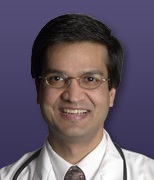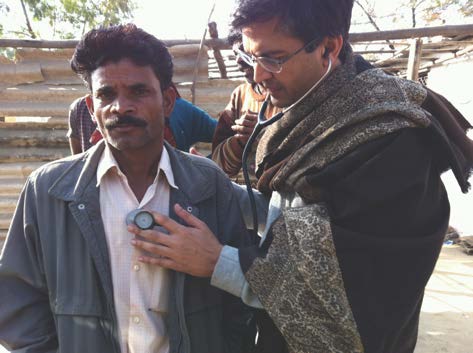Contribute
| In Conversation With Dr. Manoj Jain |
Ranjani Saigal
07/19/2018
Infectious disease is my area of expertise. I wanted to be a social worker. My parents said doctors are social workers and challenged me to become a doctor for social good.
Could you describe your journey as a physician?
It takes many years, 12 years minimum, to become a doctor. You get disillusioned on the way. You come in with ideals of wanting to help and heal, but our present medical education system and the health system does not allow these ideals to flourish. So in addition to my career in medicine I have taken on writing in Washington Post and US Today Tennessee Network. I write about health policy as well as compassion. I teach at Emory Rollins School of Public Health on how to improve physician performance in our health care system.
Could you describe your efforts in the philanthropic and social impact space?
When my wife and I completed our medical schools, we were deeply in debt. As we started our careers, we become financially stable and devoted our time to raising our three children. However, we we kept our commitment to social and philanthropic causes. We do this in three ways.
1. Service - each day I spend 2 hours on social causes such as TB Elimination in India or social-political causes in America
2. Philantrophic - we have committed 10% of our incomes to charity may it be for Young Jain of America or for the poor in India or Gandhi King Conference in Memphis.
3. Advocacy - we are committed to encourage and motivate others to join and share what they do for social impact because it makes us feel good when we help others.
Why did you choose to work on eradication of TB?
TB is a disease which is on the cusp of elimination, much like polio. Some 1,400 people die each day from TB in India, compared to only a handful in America. So elimination of TB from India is possible and now Prime Minster Modi has set a goal of TB Elimination by 2025.
2. With local leaders develop a Local Roadmap on how to make 10 localities TB Free: Indore, Bhopal, Rajkot, Sevek villages in Gujarat, Mumbai-Malad, Ahmedabad, Mysore, Nagpur, Varanasi, and Lucknow,
3. Conduct Field work with local NGOs in these localities to do TB screening in the slum areas.
How do you plan to collaborate with AAPI in accomplishing the goals?
AAPI and CETI are working together can collaborating with other national and international organizations. Sharing best practices and pushing the TB Free effort. I am the co-founder of CETI (Collaboration for Elimination of TB among Indian) an NGO based in Indore.
What are the concrete ways in which the initiative will be executed to make India TB free?
2. We are staring to build local teams to develop the Roadmap for TB Elimination
3. We hope to start field work in these localities within 4-6 weeks.
How is the program going to be sustained financially?
What are some of the other initiatives you are associated with for the greater good of humanity?
I teach mindfulness and meditation. We are conducting a training course for CDC employees in Atlanta this fall. Our website www.advancingmindfulness.com has details. Also I work with Young Jains of America www.yja.org and promote the Jain Way of Life www.jwol.org
Why do you choose to give so much time to make a difference in India?
India is the country where I was born and even a small effort by us who live in America can go a long way. There is so much potential in India, and yet there is frustration too. If social work in areas of elimination of illiteracy, contagious diseases, and poverty in India, was easy it would have been done by now. We need to be catalysts to help provide education and better healthcare to those in need. We can do it.
What message do you have for Indian Americans who want to give back but often do not work in India for a lack of connectedness to India?
Start small, but start. Maybe, with one hour a month or 100 dollars a year. Connect with people here who are doing social work in India, you will feel good, you will have a sense of meaning and purpose in life even by a small amount of time and contribution. Most importantly visit the places in need when you visit India. Begin by going to a village near your home town or a slum a few blocks away. Just walk and talk to the people. It is humbling but incredibly rewarding too. Just taking interest by us means a lot to those in need.
It is every Indian parent's dream for their child to become a doctor but does not seem to be the dream of every Indian American kid. What advice would you give children who are not sure they want to be a doctor?
Being a doctor is only one path to serving others. It is long and arduous. Follow your dreams and follow your passion. Maybe, being an entrepreneur or a innovator is your way to contribute to the world.
Any advice for young people wanting to become a doctor?
Be a doctor who will be compassionate and caring. Often in the journey to become doctors, and in our busy day to day practice we lose compassion.
You may also access this article through our web-site http://www.lokvani.com/

